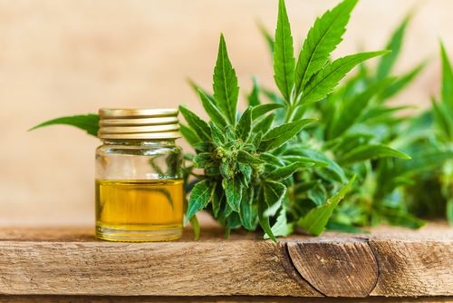Cannabidiol (“CBD”) has been all over the news lately. CBD is just one of about 100 cannabinoids found in the cannabis plant. In contrast to its sister cannabinoid, THC, CBD does not have a psychoactive effect. In other words, CBD won’t get you stoned. Interestingly, CBD can be found not just in marijuana plants but it can also be found in sizable quantities in industrial hemp—a variety of the cannabis plant that contains less than 0.3% THC. As a result, the legality of CBD products presents interesting and important legal questions.
Because marijuana remains illegal under federal law, the federal government has taken the position that CBD derived from marijuana plants is also a schedule 1 drug. However, with the passage of the Farm Bill in 2018 and other state and federal laws, CBD derived purely from industrial hemp fits into a far more murky legal space. This space has grown even murkier due to the fact that in 2018 the FDA approved Epidiolex, which is pharmaceutically-approved CBD, to treat seizures associated with Lennox-Gastaut Syndrome or Dravat syndrome.
CBD has been depicted in television shows, such as Bull, and seems to have captivated the country due to its purported medical uses. Over the last few years, CBD manufacturers and marketers have been making claims about the efficacy and “wonder” of CBD in treating a wide variety of ailments and diseases, such as cancer and Alzheimer’s. However, recently, the Food and Drug Administration (“FDA”) and the Federal Trade Commission (“FTC”) have been cracking down on CBD manufacturers and marketers for making such claims. The FDA and FTC issued joint warning letters to 3 CBD manufacturers based on these companies marketing and sale of CBD products without FDA approval and for misleading advertising.
FDA’s Commissioner, Scott Gottlieb, M.D., released a statement earlier this week detailing FDA’s concerns about CBD products. The FDA has also put out a Q&A webpage concerning FDA’s role in regulating CBD products. The FDA will hold a public hearing on May 31, 2019 to take public comment and input from stakeholders concerning how FDA should regulate CBD products. If you’re interested in submitting a public comment, you can do so here.
With major national pharmacies, such as CVS and Walgreens, announcing that they intend to sell topical CBD products such as creams, lotions, salves, patches, and sprays, the continued federal scheduling of marijuana as a schedule 1 drug has gone from hypocritical to indefensible. 33 states and Washington DC have legalized marijuana for medical use, and 10 states and Washington DC have legalized adult, recreational use of marijuana. With these variety of issues surrounding marijuana, hemp, and CBD, will 2019 finally be the year that federal prohibition of marijuana is repealed? Stay tuned.





